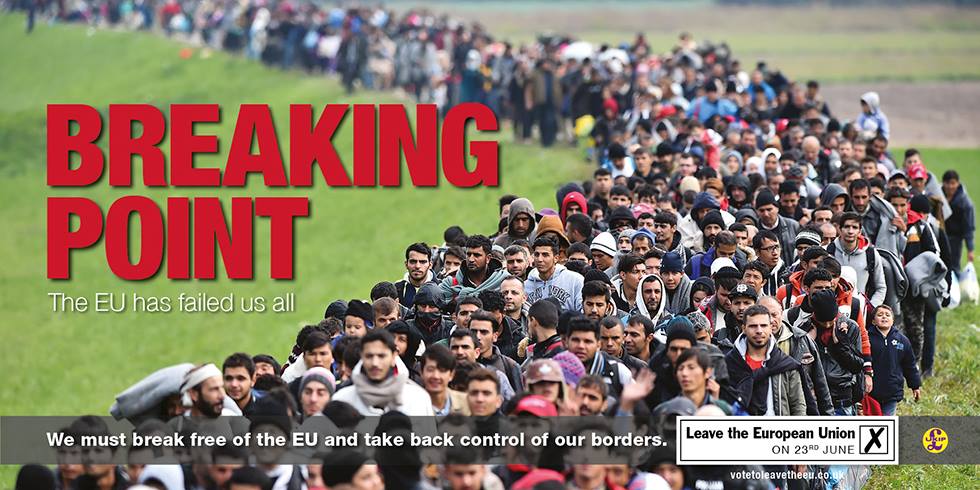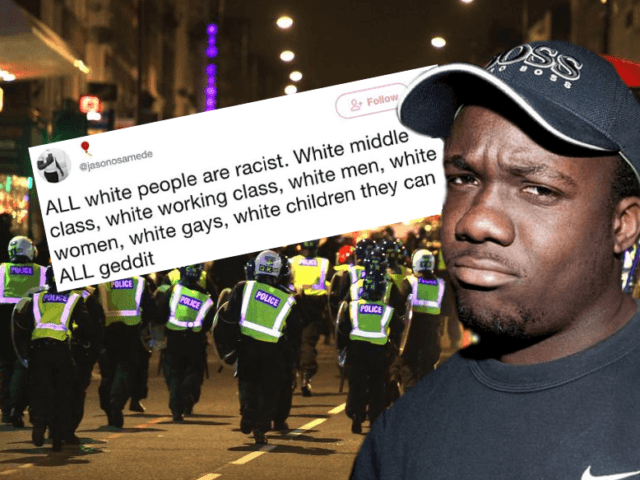Sarah Montague told a complete lie this morning on Today [0810] as she quizzed Brandon Lewis, minister of state for immigration, on what the Tory policy on immigration from the EU would be. Montague kept asserting that the Tory 2017 manifesto stated that they would get migration down to the 10’s of thousands in this parliament….except nowhere in the manifesto did it say that. The manifesto said that was what this government would work towards but gave no date at which it would be achieved…
A COUNTRY THAT COMES TOGETHER
Controlling immigration
Britain is an open economy and a welcoming society and we will always ensure that
our British businesses can recruit the brightest and best from around the world and
Britain’s world-class universities can attract international students. We also believe that
immigration should be controlled and reduced, because when immigration is too fast
and too high, it is difficult to build a cohesive society.
Thanks to Conservatives in government, there is now more control in the system. The
nature of the immigration we have – more skilled workers and university students,
less abuse and fewer unskilled migrants – better suits the national interest. But with
annual net migration standing at 273,000, immigration to Britain is still too high.
It is our objective to reduce immigration to sustainable levels, by which we mean annual net migration in the tens of thousands, rather than the hundreds of thousands we have seen over the last two decades.
We will, therefore, continue to bear down on immigration from outside the European Union.
We will increase the earnings thresholds for people wishing to sponsor migrants
for family visas. We will toughen the visa requirements for students, to make sure that we
maintain high standards. We will expect students to leave the country at the end of their
course, unless they meet new, higher requirements that allow them to work in Britain
after their studies have concluded. Overseas students will remain in the immigration statistics – in line with international definitions – and within scope of the government’s
policy to reduce annual net migration.
Leaving the European Union means, for the first time in decades, that we will be able
to control immigration from the European Union too. We will therefore establish an
immigration policy that allows us to reduce and control the number of people who come
to Britain from the European Union, while still allowing us to attract the skilled workers
our economy needs.
I’m guessing the BBC is smarting as Corbyn is on the rack for telling porkies about tuition fees and student debt and are now trying to invent a similar ‘scandal’ for the Tories on immigration….gotta have that ‘balance’ in their reporting.
Speaking of ‘balance’ here’s two BBC voices [H/T Craig at Is the BBC biased?…er no according to this] spinning away as you might expect with some interesting asides…no time right now to look at it in depth but you can do that for yourselves….[greatly abridged here]
Impartiality and the BBC – ‘broad balance’ in a two-horse race
There were those, some inside the BBC, who scoffed when we suggested the EU Referendum could be the greatest impartiality challenge the Corporation had ever faced.
There is something about referendums which poses a particular challenge for an impartial news organisation. The single focus on one issue, the passion and the partisanship, the win-or-die mentality of the one-off battle (notwithstanding indyref2) where the polarised arguments become entrenched.
We are never keen on the argument that being attacked by both sides shows you must be getting it right. It’s quite possible to be wrong in two different ways, so we always take such criticisms seriously. In any case, few issues only have two sides, so teetering in the middle of the proverbial see-saw is seldom the right place. After all, the centre is itself a political position in normal politics.
In each referendum (and each election for that matter) the BBC draws up for its programme-makers a specific set of guidelines, which complement and supplement the normal editorial guidelines. With a binary question, such as the EU Referendum, each part of the output had to achieve ‘broad balance’ – a disarmingly bland phrase which actually gives editors the freedom to make judgements rather than be ruled by maths, whilst recognising there had to be an overall similarity and consistency in the levels of coverage for Remain and Leave.
The second key element is that the broad balance must be between the two sides of the argument, not necessarily between the two formally designated campaign groups.
What is the BBC’s duty faced with each campaign’s claims in the context of a referendum? It is not, as some have suggested, to banish some facts, or one of the campaigns, to the outer darkness, a contention usually based on who is making the argument rather than the argument itself. Nor is it to indulge ‘false balance’, that is, to give opposing arguments equivalence whatever the weight of opinion on either side.
The BBC was abundantly clear [lol], for instance, that the overwhelming weight of expert economic and business opinion was advising people to vote Remain. Nonetheless, the BBC should be open to those who may challenge a consensus[very good of them] – not all such conventional opinions stand the test of time, as those many economists who banged the drum for the Euro or who failed to anticipate the financial crash might now attest. Different voices must be heard from time to time, though not necessarily given the same weight or exposure.
The BBC’s job is to enable the debate; it is to interrogate, to challenge, to contextualise and to analyse the claims made on each side. Being a platform for the democratic argument, allowing the two sides to engage directly, is a fundamental purpose of our political coverage, offering the opportunity to cross-examine each other’s claims.
Nor did the BBC shirk its responsibility to analyse the competing claims of both sides. Extensive use was made of Reality Check, the BBC’s fact-checking brand, in TV news bulletins, as well as online. Voters could find out whether it was true £350m a week could be repatriated to the UK if it left the EU. And there too the assumptions and statistical underpinnings of the Remain side’s claims about the future were dissected and laid bare. The notion that these claims were not scrutinised is simply untrue. Where claims were misleading or wrong, the BBC called it.[sorry that’s completely untrue….the BBC’s fact-checking of Remain claims were entirely free of hard fact]
The BBC’s contribution followed the Referendum Guidelines about how to achieve due impartiality and a broad balance between the Referendum arguments; the evidence suggests, by and large, it succeeded, with no substantive complaints from either campaign. Before future elections or referendums, the guidelines will be looked at afresh, but then they always are, because that is precisely the requirement of judging the ‘due’ in ‘due impartiality’.
An example of the BBC’s ‘reality check’ on Remain….such as Osborne’s £4300 hit on families if we leave the EU…
Reality Check verdict: The precise figure is questionable and probably not particularly helpful. If you want to be influenced by economic modelling, the useful thing to take away is that the Treasury thinks leaving the EU would be bad for the economy, by an amount that would dwarf the savings from not having to contribute to the EU Budget.
So may not be a precisely accurate figure but just be assured that leaving the EU would cost you vastly more than staying in…..pretty much an Osborne/Treasury propaganda piece.
Never mind that the NAO has told us that the Treasury forecast [Osborne generated black propaganda] was based upon erroneous assumptions…..
The Treasury’s dire Project Fear warnings about Brexit were based on a series of assumptions that have proved wrong, according to a government watchdog.
The National Audit Office (NAO) has highlighted the flaws in the predictions produced by the department in the run-up to the EU referendum.
Under the direction of then-Chancellor George Osborne, the Treasury published a series of papers predicting economic meltdown in the wake of a vote to leave the bloc.



